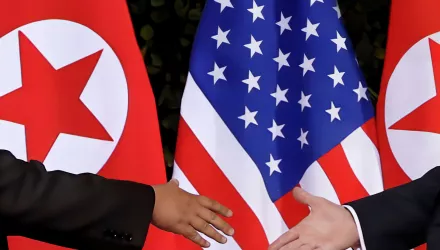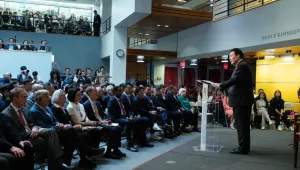North Korea has vowed to launch a long-range rocket it says is intended to carry an Earth observation satellite into space. The launch, planned for between April 12 and 16, would defy the international community.
What would this mean for relations between North Korea and the United States, which seemed to be improving after a Feb. 29 food-aid agreement? And what effect might the launch have on enduring tensions on the Korean Peninsula?
On April 12, two leading North Korea experts will examine these developments and the broader geopolitical and nonproliferation implications of Pyongyang’s nuclear program at the American Academy of Arts and Sciences. The event (invitation required) begins at 6 p.m. at the Academy’s Cambridge, Mass., headquarters.
The participants are: Stephen W. Bosworth, former U.S. Special Representative for North Korea Policy, former U.S. Ambassador to the Republic of North Korea, and dean of the Fletcher School of Law and Diplomacy at Tufts University; Siegfried S. Hecker, senior fellow at Freeman Spogli Institute for International Studies, co-director of the Center for International Security and Cooperation at Stanford University, and one of the few westerners to visit North Korea’s nuclear facilities; and (moderator) Steven E. Miller, director of the International Security Program at the Belfer Center for Science and International Affairs at the Harvard Kennedy School, and co-chair of the American Academy’s Committee on International Security Studies.


